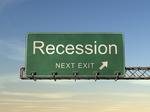Listen to this article 4 min
Editor’s Note: This story is part of our Playbook for 2023 series that looks explores key questions, challenges and opportunities facing small businesses in 2023. Find more stories in the series here and sign up for our newsletter here.
The disconnect over workplace flexibility is unlikely to change in 2023, but there’s likely to be a new element in the equation for many companies: a slowdown in business.
To this point, employees have largely been able to point to positive results to explain why they can stay remote or hybrid. If a recession takes hold, that may no longer be the case, and experts believe that will lead many managers to press for a return.
Experts say taking that step could make it challenging to recruit and retain employees — especially the critical Generation Z, which heavily values flexibility.
Micah Remley, CEO of flexible workplace platform Robin Powered Inc., said there is certainly chatter that recessionary pressure will cut into companies’ willingness to allow working from home.
But Remley said the most in-demand workers, such as those with technical and computer science degrees, are often the ones demanding flexibility the most.
“If you look at those digital disruptors, past recessions really haven’t affected them,” he said.
Remley said there are so many jobs open for those types of workers that it’s unlikely to change the flexibility dynamics in the short term. Economists have said even a recession might not give employers the type of leverage they are accustomed to having due to demographic shifts.
Then, there’s the question of whether requiring workers to come back will actually boost productivity — a topic on which there appears to be a disconnect between managers, employees and the data.
In a hiring market that’s likely to remain tight, experts say those efforts could backfire. Here are some best practices for tackling the issue in 2023:
Focus on magnets, instead of mandates: Rather than forcing employees back, experts say businesses should cultivate an environment that attracts them and makes use of collaborative time when they are there. Many companies are using dedicated “connect days” to do just that.
“We can work hybrid, but everybody be in the office on Wednesdays,” said Jan Lehman, founder of CTC Productivity. “So you know everybody’s going to be there, and those are going to be your collaboration days.”
Put in the work to build trust: One of the biggest dangers in mandating a return is eroding trust and morale.
Maureen Jules-Perez, head of people technology at Capital One Financial Corp., told The Playbook trust is a key ingredient in a hybrid office. Hybrid employees need to feel like they belong and that they are psychologically safe.
“Leaders need to understand and build relationships with their associates regardless of whether they’re working remote or in person,” Jules-Perez said. “It’s not about just small talk. It’s about the ongoing sweat equity you put into learning about the human being who provides value for your company.”
Jules-Perez said consistency is key to building that trust.
“Trust is an active term. You have to constantly check in,” she said.
Consistency could be key during a recession, because there’s another factor at play. Surveys show remote and hybrid workers are nervous they would be the first to be laid off.
About 78% of remote workers surveyed said they feared they would be more at risk of losing their jobs in a layoff than their office-based colleagues, according to The State of Remote Work in 2022: A Survey of the American Workforce, by GoodHire.
Managers suggest remote workers have valid reasons for concern about layoffs.
About 60% of 3,000 managers surveyed for presentation software firm Beautiful.ai’s The Future of Digital Work report said it’s likely remote employees would be laid off first.
Understand the stakes: While it’s easy to see why bosses might be tempted to require in-office work when sales slow, experts warn it could be costly in a tight talent market where workplace flexibility has evolved from a perk to an expectation.
An analysis by payroll provider Gusto Inc. found being categorized as remote correlated to a 13% decrease in the likelihood of quitting within the first three months.
Experts say companies can use hybrid models to strike a healthy balance between flexibility and in-office work — although some companies are dialing back those models as economic conditions shift.
20 cities that will pay remote workers to move there.
Cash, homebuyer grants, free goodies and more are part of a new form of economic development.
















